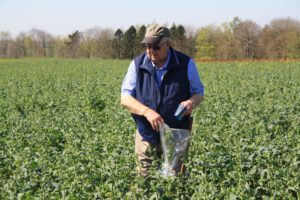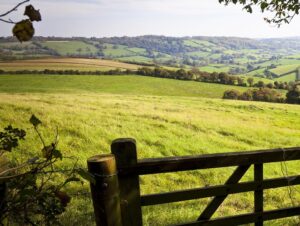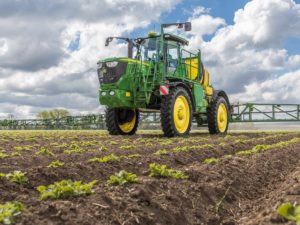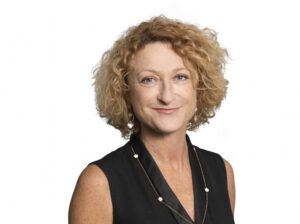
After nearly 45 years in the industry, Mike Pickford – the UK’s only independent oilseed rape breeder – has managed to get not one, but two varieties onto the Recommended List. But what actually goes into breeding a successful rapeseed variety?
DLF Seeds, which markets Mike’s varieties, recently held an open day at SGS Environmental’s trials site near Banbury, Oxon, to explain the process. “It takes about eight years for a variety to get from concept to market, with a huge amount of investment and work,” explains business development manager Clive Sutton.
“Mike has produced a lot of good varieties and had a few near-misses when it comes to AHDB recommendation, so it’s a lovely situation to be in, having not just one variety coming through but twins.”
So how did Mike create this dynamic duo, Elevation and Broadway? “I want to breed what the farmer wants; something that looks nice, yields well and is consistent,” he explains. When selecting varieties he initially looks for vigour and disease resistance, with yield and agronomic characteristics coming into play a couple of years down the line.
Mike creates about 50 crosses a year, selecting complimentary parent stock to try and take the best qualities from each. He then plants F1 seed out in the field, to produce F2 plants, from which he selects the best to produce around 300 F3 lines each year.
“There are two components to yield: Agronomy and genetics,” he explains. “You have to start off with good genetics – agronomy is the extra tool to realise that potential.” He looks for high seed and pod numbers, as these are the major driver of yield, and there are big genetic differences between them. Conventional varieties typically average 20-30 seeds, but Elevation has between 30 and 45 seeds per pod, with a 1g heavier thousand seed weight of 5.5-6g.

Mike spends a lot of his time walking the crops and tagging the best plants with blue twine. At flowering he places a selfing bag over the best plants, to prevent cross-pollination. “I bag 1200-1500 plants a year but will ditch a lot of them before and after harvest, so I’m only using the best.”
At the F4 stage, the varieties are planted across eight to 10 UK and European trial sites. This variety of soil types and climates challenges their consistency, producing both treated and untreated yield and quality results.
Mike is targeting yields of over 6t/ha – and Elevation achieved 7t/ha in trials. Disease resistance – particularly to light leaf spot and verticillium wilt – is also important, as are physical characteristics like good autumn establishment and standing ability.
By year five, the varieties can go forward to official National List trials for two years: Only then does Mike discover whether they will secure full AHDB recommendation and go into commercial production.
Fortunately, all of this hard work paid off when AHDB unveiled its 2018 Recommended List, with both Elevation and Broadway making it onto the northern list. Elevation was the highest yielding variety in all regions in 2017 and tops the northern trials Recommended List for 2018, with a gross output of 107.4% against the controls. Broadway was the highest yielding variety in the North in 2016 and scores a gross output of 106.7% on the Recommended List for 2018.
So what’s next for this rapeseed legend? “Elevation mark two is in the pipeline and will probably enter official trials this autumn,” he says. “I believe we have a long way to go with the potential yield of this crop – it’s all very exciting.”
Table – Recommended List ratings (AHDB, North 2018-19)
| Gross output | Oil content % | Earliness of flowering | Maturity | Height (cm) | Light leaf spot | Resistance to lodging | |
| Elevation
|
107.4 | 45.8 | 5 | 5 | 152 | 6 | 8 |
| Broadway
|
106.7 | 45.7 | 6 | 4 | 153 | 7 | 8 |
- For more information contact DLF on 01386 793135 or visit www.dlf.co.uk.





